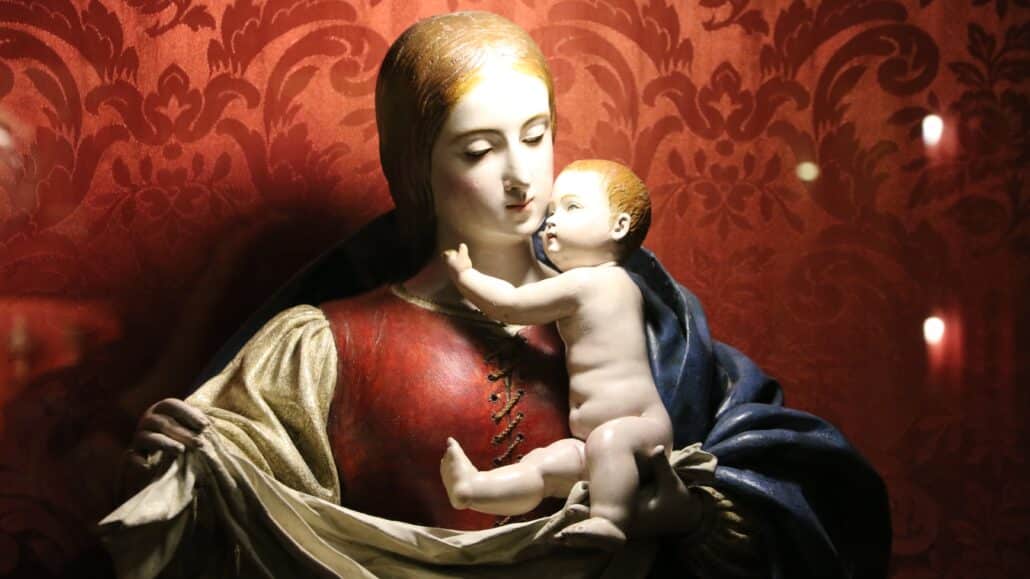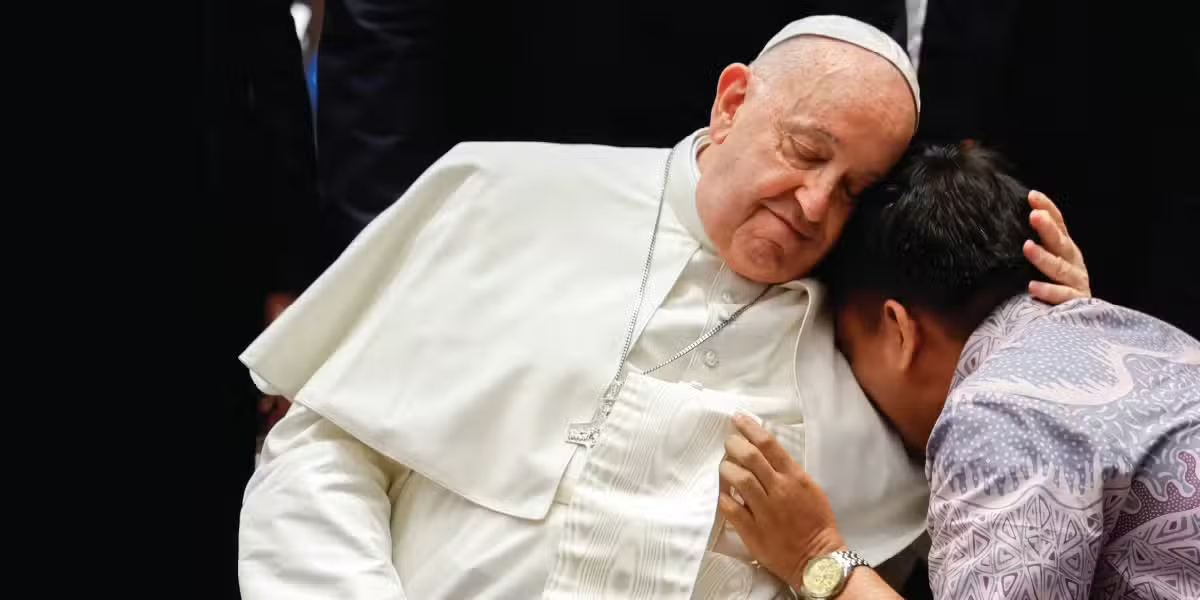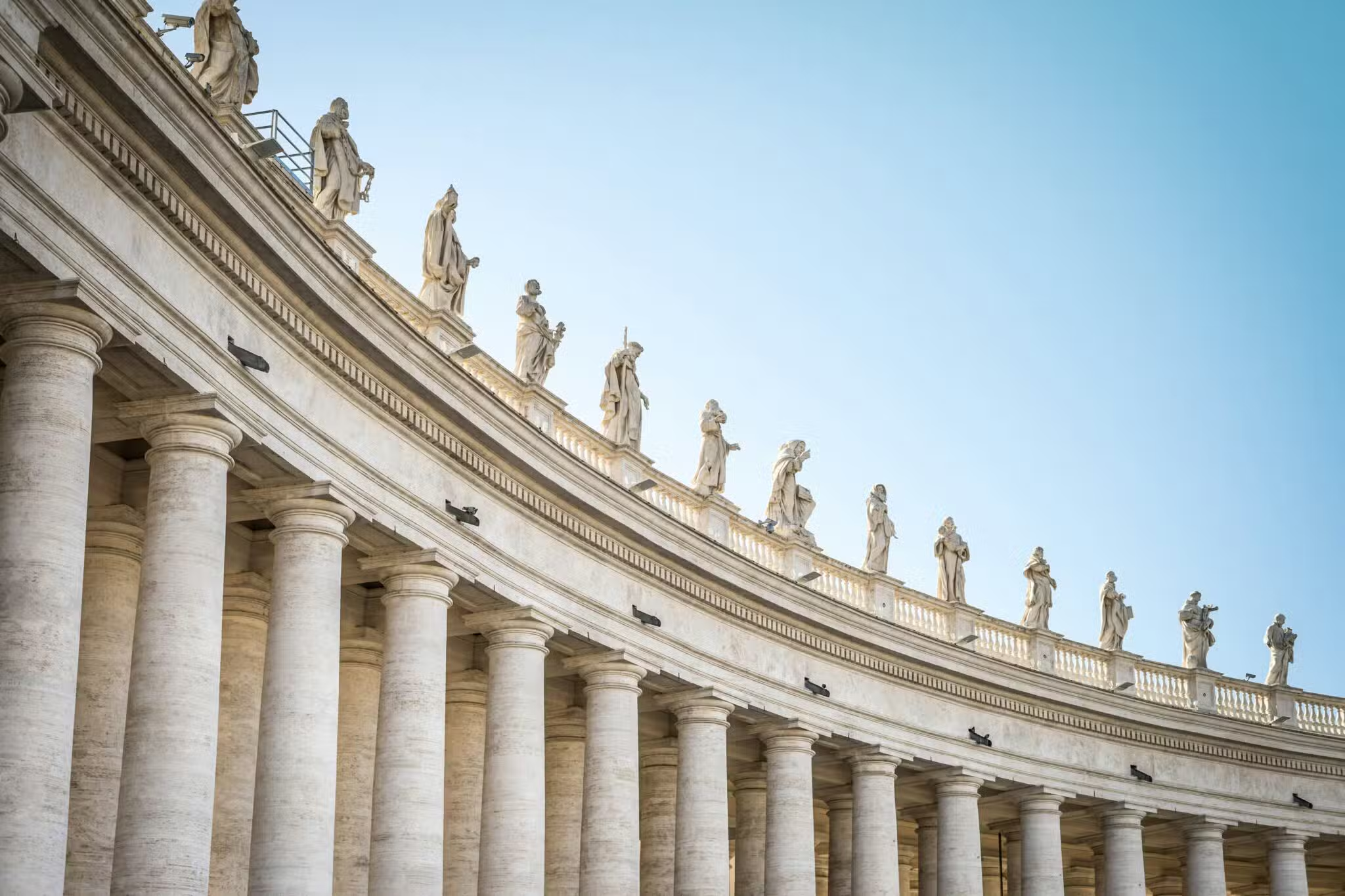What is the relationship between St. Francis and the Christmas crib?
It was near the end of his life that Francis had the marvelous idea. He told his friend John Velita of the little town of Greccio, “I should like to celebrate the coming feast of Christmas with you. And I should like to commemorate his birth in Bethlehem in a way that can bring before me as much as possible a way of seeing his poorness and suffering. That is why I want to set up a manger scene with ox and ax to keep the infant company. We will bring hay to this cave on the mountainside.”
It was 1223, and the beginning of the Christmas crib and manger scene, a tradition that is present in so many homes around the world every Christmas season.
One of the great mysteries of our faith—and one that occupied the mind and heart of Francis—is how it was possible that almighty God, infinite and all good, could come down upon this earth and become human like us. This small infant could be picked up by any of God’s creatures. How could one hold God in his or her hand?
How did God become touchable through the Incarnation?
That’s why we call this the mystery of the Incarnation—God becoming flesh. There are many ways God could have come to our planet. He could have descended as a man, a king, a ruler or a general and just appeared in the midst of humanity. That would have attracted attention and raised questions: Who is this man? Where did he come from? Imagine the reaction to Jesus’ miracles, impressive proof that he was the Messiah, the new King David—the ruler who would cast out any last remnant of the Roman Empire. That would make sense to many of us.
But then we know that love does strange and unpredictable things. Why come in power when you can come in weakness? Surprise! God chose the latter. With no wealth, no power, no entourage and no army, God came as an infant, born of a teenage girl with a new husband.
When God chose from eternity to become human, he chose to come as the opposite of what humans imagined him to be. Why? It seems that everything Jesus would reveal when he grew into his public ministry would be confounding to so many people: Be a peacemaker and thirst after justice (Mt 5). Love God and love all your brothers and sisters as you love yourself (Lk 10:27ff). Forgive one another, even your enemies (Lk 6:27). If you eat my flesh you shall never die because I am the bread of life (Jn 6).
So often people had come to think of almighty God as a warlord and a conqueror. But Jesus was meek and humble of heart. He befriended sinners, embraced lepers, healed the sick and suffering and gave life to the dead.
It’s no wonder Francis of Assisi wanted his people to see Jesus as he really appeared on this earth: weak and dependent. And what a perfect way to show the people—with a manger scene. The people made their way to the cave for midnight Mass, carrying their torches and singing hymns. We take our crib scenes for granted since we are so familiar with them. But imagine gazing on such a scene for the first time and what it must have meant to those townspeople.
How does the “littleness” of God shout his greatness?
The Psalms tell us that the “heavens declare the glory of God” (19:2). There is no doubt about that. Photos of galaxies and the billions of stars that make them up do take our breath away. But God becoming flesh does even more. God became tiny, fragile, vulnerable and needy, and Jesus even left footprints on this earth. And on every person he touched—and there were many, including lepers—he left his own fingerprint.
We can’t grasp the meaning of all that, though every once in a while we get a glimpse of the mystery. Imagine, then, that this God who became flesh, died, rose from the dead and returned to heaven did not abandon us. We hold this God-made-man in our hands each time we receive the Eucharist. This Christmas we are reminded again of our personal relationship with the Word of God made flesh. When we say, “Amen,” we are saying, “Yes, I believe.” On earth it doesn’t get better than this!









1 thought on “3 Questions about the Incarnation”
Thanks be to God for a Francis who admired the littleness chosen by God. It alters perspectives profoundly in our American culture of self-promotion, of gain, of thirst for recognition, of amassing things.
Comments are closed.